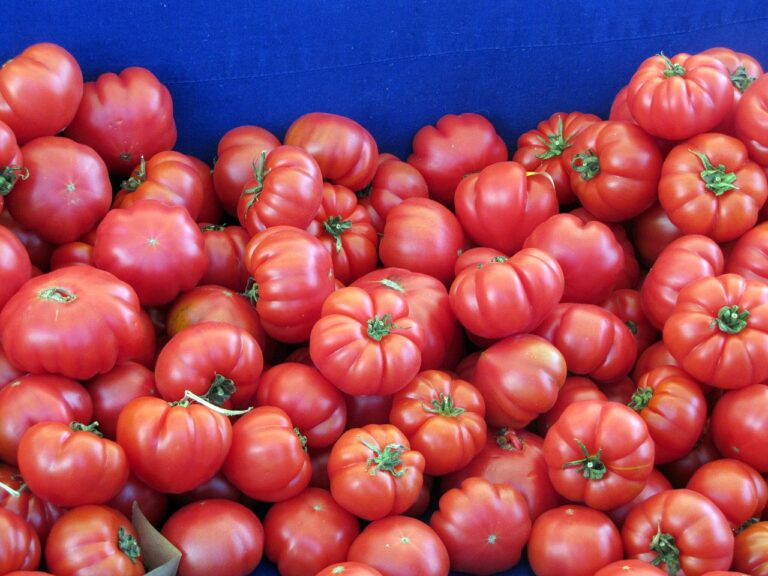The Future of Food Education: Integrating Sustainability and Nutrition
Many current food education systems face significant challenges that hinder their effectiveness in promoting healthy eating habits and cultivating a sustainable food culture among students. One of the main obstacles is the lack of standardized curriculum across different schools and regions, leading to inconsistencies in the quality and depth of food education provided to students. This disparity in education results in varying levels of knowledge and understanding among students, making it difficult to establish a universal foundation for healthy eating practices.
Moreover, the limited resources and funding allocated to food education programs also present a major challenge for schools. Oftentimes, schools struggle to access fresh and nutritious foods, as well as the necessary equipment and materials for hands-on cooking activities. This financial strain not only impedes the implementation of comprehensive food education initiatives but also restricts the opportunities for students to engage in practical learning experiences that could significantly impact their food choices and behaviors.
Limited resources and funding allocated to food education programs
Difficulty accessing fresh and nutritious foods for students
Lack of necessary equipment and materials for hands-on cooking activities
Financial strain impedes implementation of comprehensive food education initiatives
The Importance of Teaching Sustainability in Food Education
When it comes to food education, teaching sustainability is paramount in ensuring a more conscientious approach to food production and consumption. By integrating sustainability principles into the curriculum, students not only learn about the environmental impact of their food choices but also gain a deeper understanding of the interconnectedness of our food systems. This knowledge empowers them to make more informed decisions that support a more sustainable and resilient food system for the future.
Moreover, teaching sustainability in food education helps instill a sense of responsibility and stewardship towards the environment in students from a young age. By emphasizing the importance of sustainable practices such as reducing food waste, supporting local farmers, and choosing seasonal produce, educators can cultivate a mindset that values the well-being of the planet and future generations. Ultimately, incorporating sustainability into food education is not just about teaching a subject; it is about nurturing a mindset that prioritizes the health of both people and the planet in our food choices.
Incorporating Local and Seasonal Foods into the Curriculum
Introducing local and seasonal foods into school curriculums can provide numerous benefits for students’ understanding of where their food comes from and the impact of their food choices. By incorporating these foods into lesson plans, educators can help students develop a deeper appreciation for the environment, local farmers, and sustainable agricultural practices. This hands-on approach can also foster a sense of connection to the community and encourage students to make more informed choices about the food they consume.
Furthermore, teaching with local and seasonal foods can serve as a gateway to exploring cultural diversity and culinary traditions. Students can learn about different cuisines, cooking techniques, and food customs that are unique to their region or the cultures represented in their community. This holistic approach to food education not only enriches students’ knowledge but also promotes inclusivity and respect for diverse food practices.
Why is it important to incorporate local and seasonal foods into the curriculum?
Incorporating local and seasonal foods into the curriculum helps students understand the importance of supporting local farmers, reduces the carbon footprint associated with food transportation, and promotes healthy eating habits.
What are some challenges in current food education systems?
Some challenges in current food education systems include a lack of emphasis on sustainability, limited access to fresh and healthy foods in schools, and a disconnect between food production and consumption.
How can teachers incorporate local and seasonal foods into their curriculum?
Teachers can incorporate local and seasonal foods into their curriculum by partnering with local farmers, organizing field trips to farmers markets or farms, and integrating cooking or gardening activities into their lessons.
How does teaching sustainability in food education benefit students?
Teaching sustainability in food education benefits students by instilling a sense of responsibility towards the environment, promoting awareness of food production processes, and encouraging mindful consumption habits.
What resources are available to help educators incorporate local and seasonal foods into their curriculum?
Educators can find resources such as lesson plans, curriculum guides, and online tools from organizations like Farm to School and FoodCorps to help them incorporate local and seasonal foods into their curriculum.







